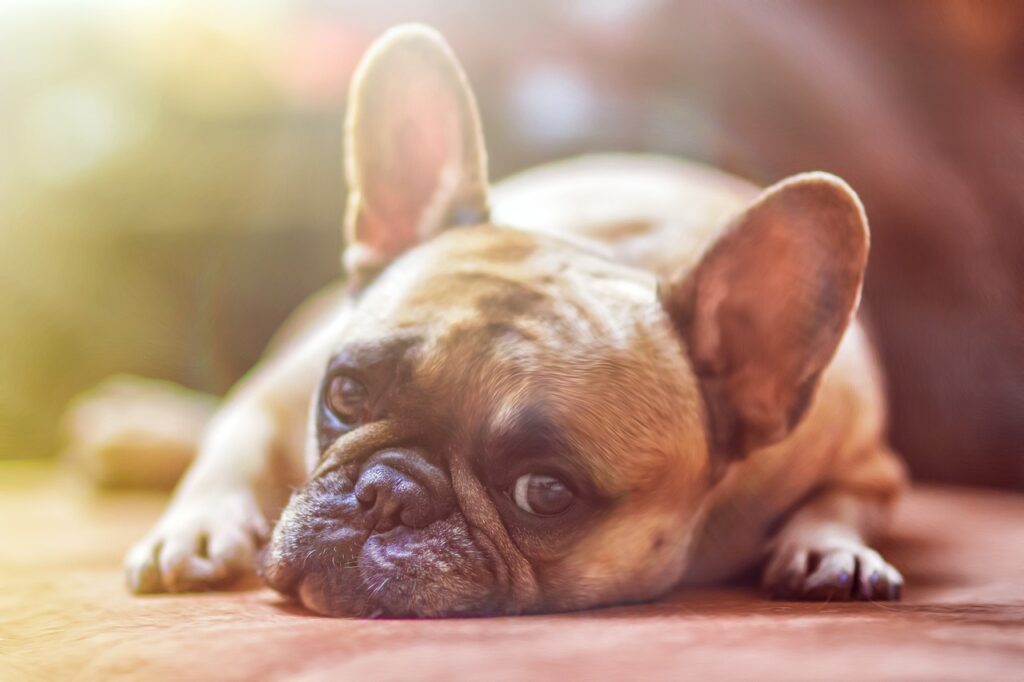Can Dogs Eat Rhubarb? — No, They Can’t
Rhubarb is a delicious and versatile vegetable commonly used in desserts and savory dishes. However, when it comes to our canine companions, it is essential to exercise caution. Dogs should not consume rhubarb due to its potential risks and harmful effects on their health.
Can Puppies Eat Rhubarb?
Puppies, with their delicate digestive systems, are even more vulnerable to the adverse effects of rhubard. Therefore, it is highly recommended to keep rhubarb away from puppies and ensure they don’t accidentally ingest it.
Why is Rhubarb Harmful for Dogs?
Rhubarb contains substances that are toxic to dogs, such as oxalates and anthraquinone glycosides. These compounds can have severe consequences on a dog’s health, leading to various complications.
Risk 1: Digestive Issues
One major concern of rhubarb consumption in dogs is its impact on their digestive system. The oxalates present in rhubarb can cause irritation and inflammation in the mouth, throat, stomach, and intestines. This can lead to symptoms such as drooling, abdominal pain, vomiting, and diarrhea.
Risk 2: Kidney Problems
Rhubarb’s oxalates can also contribute to the development of kidney stones in dogs. These stones can obstruct the urinary tract and cause discomfort, pain, and difficulty in urination. If not addressed promptly, they can lead to serious complications and even kidney failure.
Risk 3: Poisoning Symptoms
Ingesting a significant amount of rhubarb can result in toxic reactions in dogs. The anthraquinone glycosides in rhubarb can cause symptoms like weakness, tremors, seizures, and irregular heart rhythm. Immediate veterinary attention is crucial if you suspect your dog has consumed rhubarb in harmful quantities.
Symptoms to Watch Out For After Dogs Consume Rhubarb
- Vomiting: Dogs may experience repeated episodes of throwing up.
- Diarrhea: The consumption of rhubarb can lead to loose stools or diarrhea in dogs.
- Abdominal Pain: Dogs may exhibit signs of discomfort in the abdominal area, such as restlessness or whining.
Immediate Steps to Take if Your Dog Eats Rhubarb
- Induce Vomiting: If you catch your dog eating rhubarb and it has been less than two hours, contact your veterinarian immediately. They may instruct you on how to induce vomiting to eliminate as much rhubarb as possible from your dog’s system.
- Seek Veterinary Help: Regardless of the situation, it is essential to consult with your veterinarian for guidance and advice tailored to your specific dog’s needs.
- Monitor and Provide Support: Keep a watchful eye on your dog’s behavior and any changes in their health. Provide comfort and ensure they have access to plenty of fresh water.
Safe Alternatives to Rhubarb
While rhubarb should be avoided, there are several safe and enjoyable food alternatives that dogs can indulge in. Consider offering your furry friend these options:
- Bananas — Bananas are a healthy, natural treat rich in potassium and fiber, promoting good digestion and muscle function in dogs.
- Carrots — Carrots are low in calories and high in essential nutrients, providing a crunchy and tasty alternative to rhubarb.
- Blueberries — Packed with antioxidants and vitamins, blueberries are a safe and delicious choice for dogs, offering numerous health benefits.
Conclusion
In conclusion, it is crucial to prioritize the well-being and safety of our furry companions. Rhubarb poses significant risks to dogs due to its oxalate and anthraquinone glycoside content, which can lead to digestive issues, kidney problems, and even poisoning symptoms. By avoiding the consumption of rhubarb and opting for safe alternatives like bananas, carrots, and blueberries, we can ensure the health and happiness of our beloved canine friends.
Frequently Asked Questions
Can dogs eat cooked rhubarb?
No, cooked rhubarb still contains the toxic substances that can harm dogs. It is best to avoid feeding rhubarb to your furry friend in any form.
What should I do if my dog ate a small amount of rhubarb?
Even a small amount of rhubarb can potentially cause harm to dogs. It is essential to monitor your dog closely for any symptoms and contact your veterinarian for guidance.
Are rhubarb leaves more toxic than the stalks?
Yes, rhubarb leaves contain higher levels of oxalic acid, making them even more toxic than the stalks. Both should be kept away from dogs to ensure their safety.
Can rhubarb poisoning be fatal for dogs?
If left untreated or if a significant amount of rhubarb is consumed, poisoning can have severe consequences and potentially be fatal for dogs. It is crucial to seek veterinary assistance immediately.






